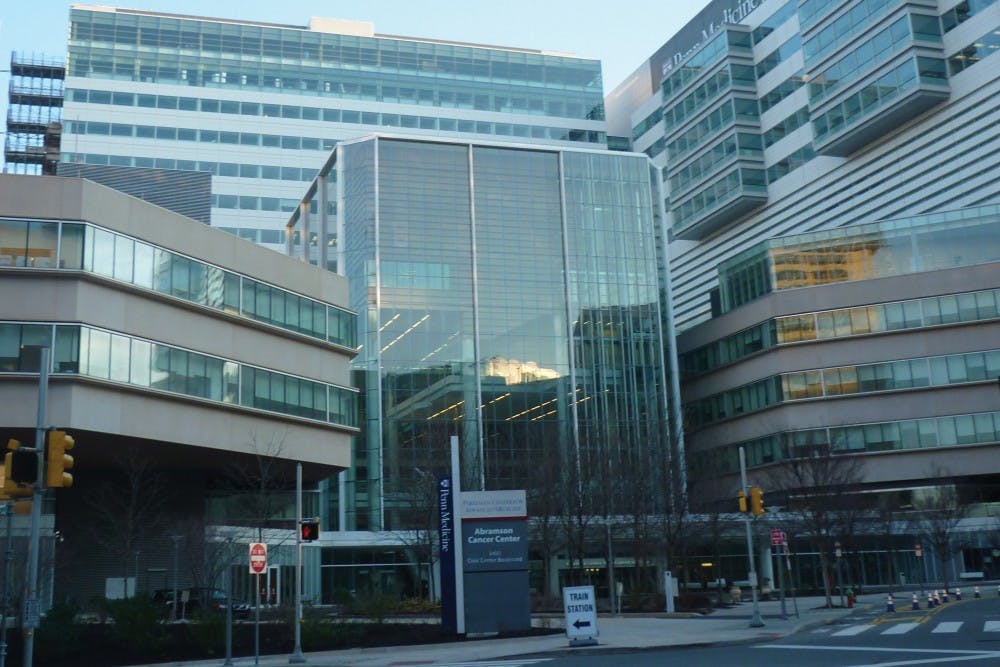One year after Penn students launched the company Ride Health, Penn Medicine's Abramson Cancer Center has seen patients arriving to appointments more often and more on time, and the ridesharing technology has reduced the time and money staff spend on securing rides for patients.
The company works with transportation providers and ridesharing companies like Uber and Lyft to offer transportation to patients who don’t have the means to travel to appointments for crucial treatments like chemotherapy.
Ride Health’s web-based interface allows health care coordinators and social workers to arrange on-demand rides for patients. Ride Health can even arrange for an ambulance for patients who need medical supervision on their way to an appointment.
Four Penn students founded the company last year — 2016 College graduate Imran Cronk, 2017 College and Wharton graduates Sumun Khetpal and Christine Yang, and College and Wharton senior Vedant Thyagaraj. Ride Health was then a semifinalist in the Penn Wharton Entrepreneurship Start Up Challenge.
Previously, many patients would use Non-Emergency Medical Transportation, a Medicaid benefit that offers free transportation to patients to get to their appointments.
Health Innovation Manager at the Hospital of the University of Pennsylvania Mike Serpa said a drawback of NEMT is that patients must schedule a pick-up several days in advance. This can pose a problem for patients who might be asked to come in for a last-minute appointment to discuss important test results.
With the long waiting times for NEMT added in, patients may spend their entire day going to a single appointment. In fact, a NEMT may not show up at all.
After Ride Health was introduced at the Abramson Cancer Center, Ride Health founders and HUP supervisors said they have seen improvements in patient satisfaction and more efficient care.
“[Health systems] see fewer no-shows to their appointments,” said Ride Health co-founder and CEO Cronk. “That has operational benefits for health care providers because you're actually getting patients in the door, or out of bed, on time.”
“There's also been a significant reduction in the amount of time staff has to spend assisting patients on a ride,” Serpa said. “You're saving 10 to 15 minutes per ride per patient.”
Those cost savings from Ride Health allows Penn Medicine to redirect those funds back into helping more patients.
“By cutting your costs 30 to 40 percent, you can then help 30 to 40 percent more people with the same amount of dollars," Serpa said.
This ridesharing is free for patients, as Penn Medicine pays for it with money that typically goes toward taxi vouchers for patients in need of transportation help.
The rides are roundtrip, so patients will receive a ride home as well. Many customers have found this feature of the program valuable, especially if their appointments end late at night.
Serpa said Ride Health helps patients and health systems resolve issues in real time.
“One patient didn't get out of [the hospital] until 8 or 9 p.m.,” Serpa said. “But because of the nature of what Ride Health has built, the patient was basically able to text [Ride Health] to say, ‘Hey, dispatch my ride and come pick me up.’”
Transportation barriers, however, are not the only factor leading to missed appointments.
Patients often struggle to get a day off of work and to get childcare, and the lack of resources that prevent patients from prioritizing their health can also affect appointment attendance rates, said Krisda Chaiyachati, a professor in the Department of Medicine at Penn.
“People don't have the social or economic capital to pull on, even in moments in which they realize it's a life or death or emergency situation,” Chaiyachati said.
Correction: A previous version of this article listed three founders of Ride Health, when in fact there are four. The DP regrets the error.









